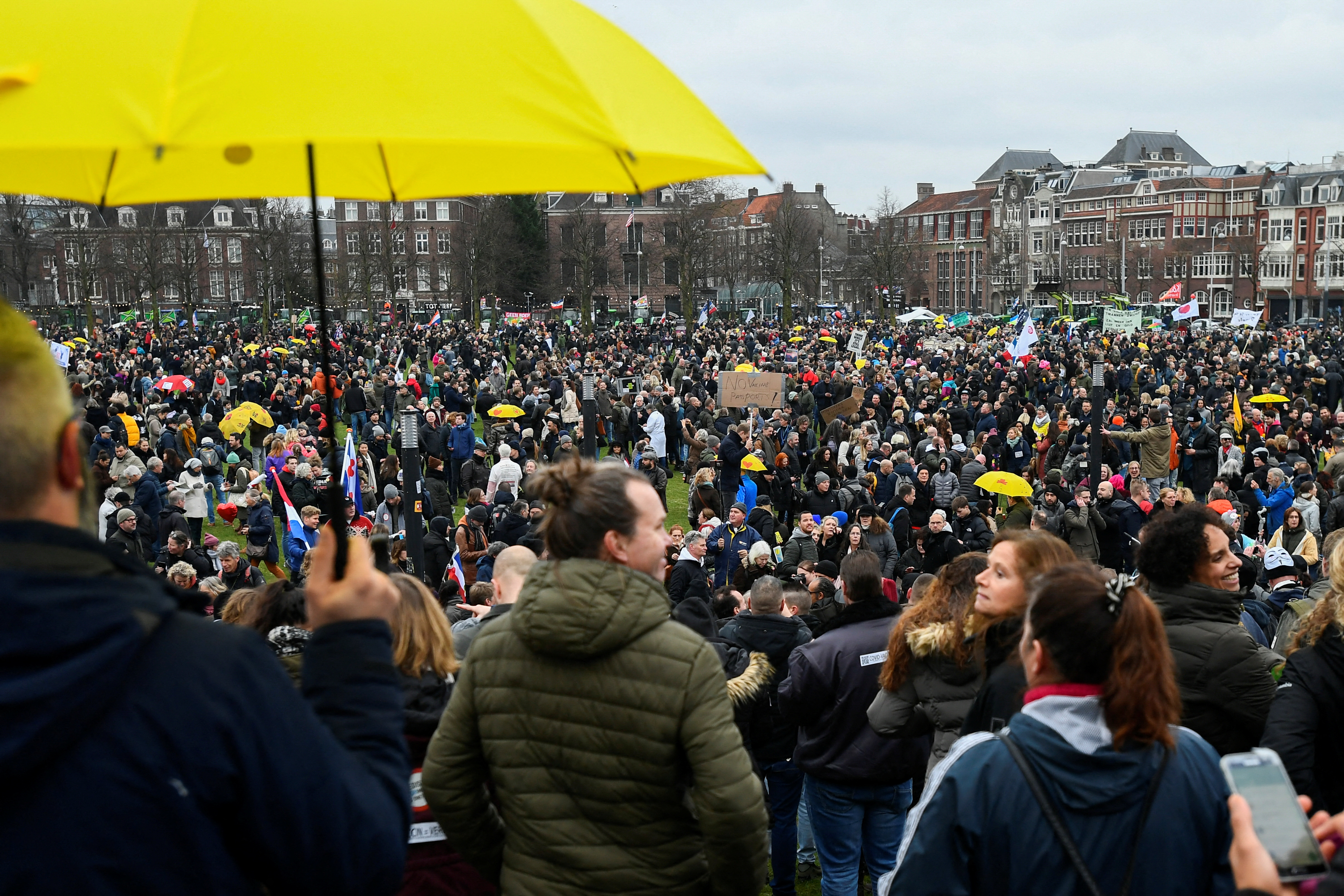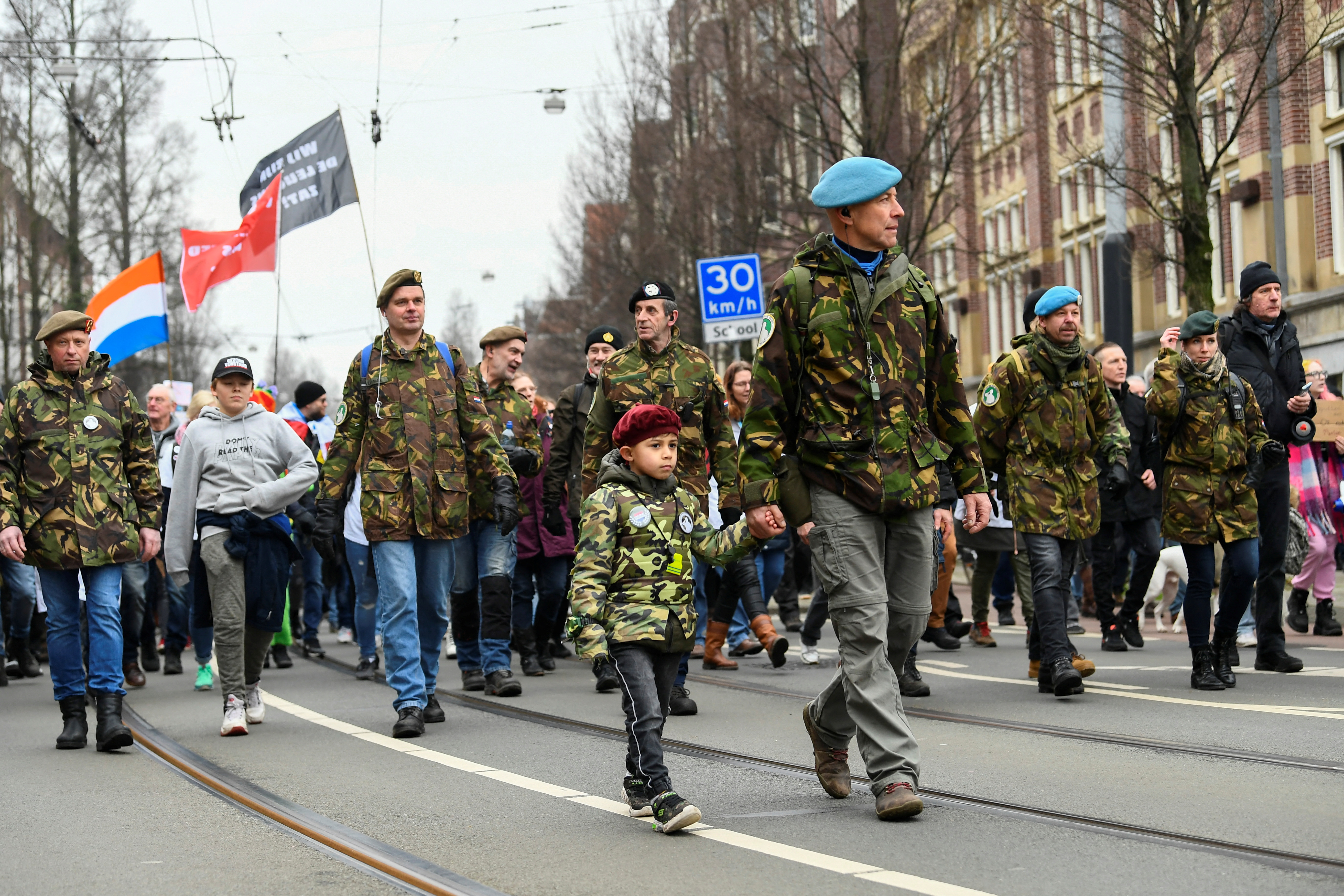coronavirus
Protest in Netherlands against coronavirus measures



Thousands of protesters packed Amsterdam's streets on Sunday (16 January) in opposition to the government-imposed COVID-19 measures and vaccination campaign as virus infections hit a new record, writes Piroschka Van De Wouw.
Authorities were granted stop and search powers at several locations across the city and scores of riot police vans patrolled neighbourhoods where the demonstrators marched with banners and yellow umbrellas.
Regular anti-coronavirus protests are held across the country and Sunday's large gathering was joined by farmers who drove to the capital and parked tractors along the central Museum Square.
The crowd played music, chanted anti-government slogans and then marched along thoroughfares, blocking traffic.
The Netherlands had one of Europe's toughest lockdowns for a month through the end-of-year holidays.
Amid growing public opposition, Prime Minister Mark Rutte on Friday announced the reopening of stores, hairdressers and gyms, partially lifting a lockdown despite record numbers of new COVIC-19 cases. read more
Infections reached another record high above 36,000 on Sunday, data published by the Netherlands Institute for Health (RIVM) showed. The Netherlands has recorded more than 3.5 million infections and 21,000 deaths since the start of the pandemic.
Rutte's government ordered the lockdown in mid-December as a wave of the Delta variant forced the health system to cancel all but the most urgent care and it appeared rising Omicron cases would overwhelm it.
Non-essential stores, hairdressers, beauty salons and other service providers were allowed to reopen on Saturday under strict conditions.
Bars, restaurants and cultural venues have been instructed to remain closed until at least 25 January due to uncertainty about how the Omicron wave will impact hospital capacity.
Share this article:
-

 Conferences3 days ago
Conferences3 days agoNatCon’s on-off conference halted by Brussels police
-

 Mass surveillance4 days ago
Mass surveillance4 days agoLeak: EU interior ministers want to exempt themselves from chat control bulk scanning of private messages
-

 Conferences4 days ago
Conferences4 days agoNatCon conference to go ahead at new Brussels venue
-

 European External Action Service (EAAS)4 days ago
European External Action Service (EAAS)4 days agoBorrell writes his job description


























